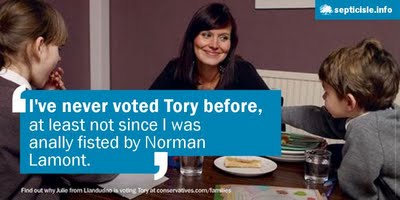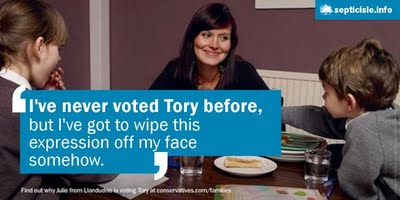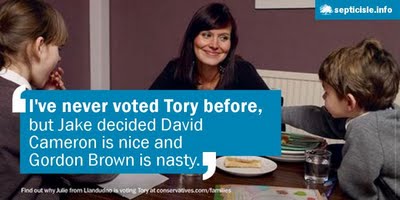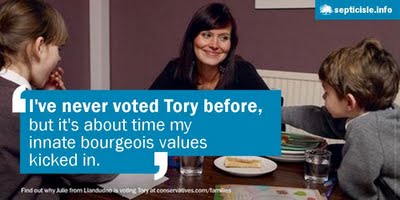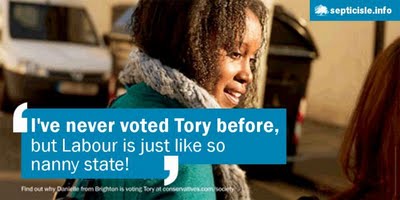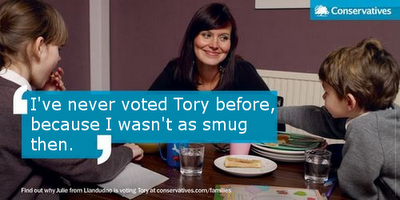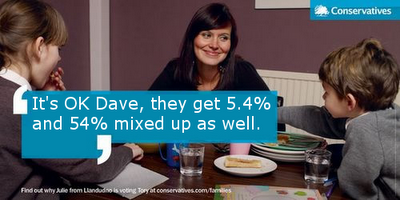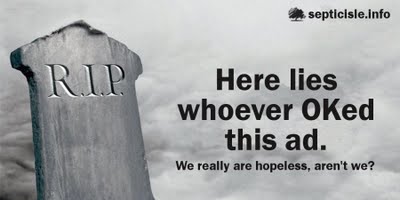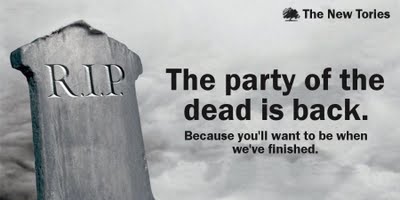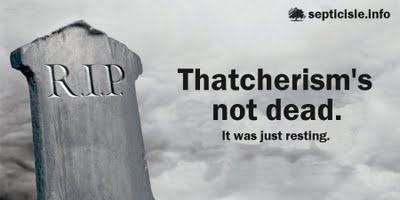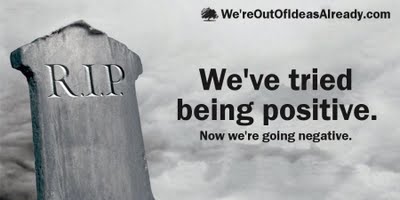In defence (somewhat) of George Osborne.
As initiations go, not just to the Bullingdon but to other similar clubs, one suspects that was actually fairly tame. While the referring to him as "oik" was probably more of a joke than meant seriously, it probably reflects the attitudes which Osborne has encountered for most of his life. Far too upper class for the vast majority of the population to instantly warm to him, yet still not rarefied enough for him to be automatically welcomed into the even more exclusive establishments. You only have to look at how the City, where you'll never come across such a wide variety of stuffed shirts, has reacted towards him: with something approaching utter horror, despite the fact we currently have a Labour chancellor, a member of a party whom they've been taught all their lives to instinctively loathe. Admittedly, this might partly be down to New Labour's complete subservience to the financial sector, for which they have been rewarded in kind, yet you'd still think that getting back to what they know best would be attractive.
The class warrior in me wants to loathe Osborne for all the reasons which have been outlined ever since he became shadow chancellor, almost none of which are based on actual substance. The Heresiarch, writing on why David Cameron should get rid of Osborne while he still has a chance, openly admits that at least partly his reasoning is based on Osborne's manner and appearance. When natural Conservatives feel this way, you can't even begin to imagine what the general public thinks. In the Graun today both Lucy Mangan and Michael White, commenting not entirely seriously, but as the old saying (or cliché) goes, there's many a truth spoken in jest, voice just some of the unveiled insults thrown Osborne's way. Mangan suggests that he's a "walking justification for all the schoolyard bullying there ever was, is, or ever shall be", which is an especially unpleasant comment, not least for those who have suffered from bullying, for which there is never any justification. White, meanwhile, went instead for a startling funny joke about how this was the most momentous day for him since he "was first allowed to travel alone on the school bus". Never mind that you suspect Osborne has never had to travel on a school bus, which rather undermines the gag, it's just another riff on Osborne being a boy amongst men.
To be fair, I have myself slipped into this casual abuse, as in this post from a couple of years back:
Take as a further example George Osborne, who ought to be on an absolute hiding to nothing. He's young, resembles a caricature of the smarmy, upper-class snob that spent his tender years smashing up restaurants when he wasn't shovelling white powder up his nostrils, with a face so punchable it's a marvel that he hasn't got a broken nose and a good number of teeth missing, knows next to nothing about economics, and has all the charm (to this writer at least) of a self-portrait of Kate Moss drawn in lipstick and Pete Doherty's blood.
This is though partially what the objection to Osborne rests on. That he's young, and therefore inexperienced, something which isn't said anywhere near as often about Cameron despite the Tory leader only being a few years older, that what he did as a young man matters when it categorically shouldn't, even if he did indulge in taking wanker powder and may have used escorts as the more lurid allegations have it, and that he should be judged on what he looks like, which can't be helped, and on how much charisma he radiates, which is very little. Osborne's main problem with relating to voters is that he does seem too much of the toff, that he comes across as patronising, and that he just has that eminently punchable quality mentioned above. None of these things are barriers to being a "successful" politician; just look at the far more patronising Patricia Hewitt and Margaret Beckett, both of whom have had decent careers, even if they're not exactly the individuals Osborne himself would like to be compared to. He has absolutely nothing in the "toff" stakes compared to the offspring of William Rees-Mogg, both of whom are trying to be elected (Cameron supposedly asked whether Annunziata would consider calling herself "Nancy" in a bid to get down with the proles) as Conservative MPs, nor those featured in that now notorious issue of Tatler, and as for punchable, well, I personally would much rather lamp the egregious Phil Woolas, perhaps the most disgusting politician to have emerged from the Labour party in recent times.
When it comes to challenging Osborne on substance, the case against him is much slimmer. Yes, he was a distant third in the chancellor's debate yesterday, but he wasn't a disaster either, and he was always likely to find it difficult to compete with the sainted Vince Cable and the currently supremely confident Alistair Darling. It has to be remembered that it was Osborne's wheeze on inheritance tax three years ago which almost certainly stopped Gordon Brown from calling a snap election; that policy sticks in my personal political craw, and it was a promise which was only so popular because "middle England" thinks that IHT is going to hit them when it almost certainly won't, but it did the business. Yesterday's pledge to not raise national insurance contributions was hardly the most robust policy, exposed completely by Vince Cable in the debate as being costed by even more inefficiency savings, the same ones Osborne had lambasted the previous week, but that must have been debated at far more senior levels of the party and OKed rather just being Osborne's initiative.
The question then if Osborne was to be removed is who would replace him. The obvious answer is Ken Clarke, but the reasons for why he hasn't been given a post more senior than business secretary are apparent: the Cameroons don't trust him, and he's not prepared to temper his own views on Europe and even IHT enough to be given a more senior role without even more unwelcome stories on splits being written. Apart from Ken, just who is there ready to step in? It's not as if Osborne is also the only weak link in the Tory front bench line-up. What about the gaffe prone Chris Grayling, who when he isn't claiming that parts of Britain are like the Wire is defending using completely inaccurate crime statistics, and whose department claimed that 54% of teenage girls in the most deprived areas were getting pregnant when the true figure was 5.4%? Then there's Michael Gove at education, another eminently punchable figure, whose campaign against Unite's involvement with Labour plumbed new depths of union-baiting, is a confirmed Tony Blair lover, an unapologetic foreign policy neo-conservative and rubs people up the wrong way just as much as Osborne. Osborne may be unloved, and that might even be justifiable, but to move him now would be a sign of absolute weakness on the part of Cameron, which would be rightly seized on by the other parties. Ultimately, Cameron and Osborne were promoted together, and they should fall together.
Labels: 2010 election campaign, Conservatives, David Cameron, George Osborne, politics, the new Tories



